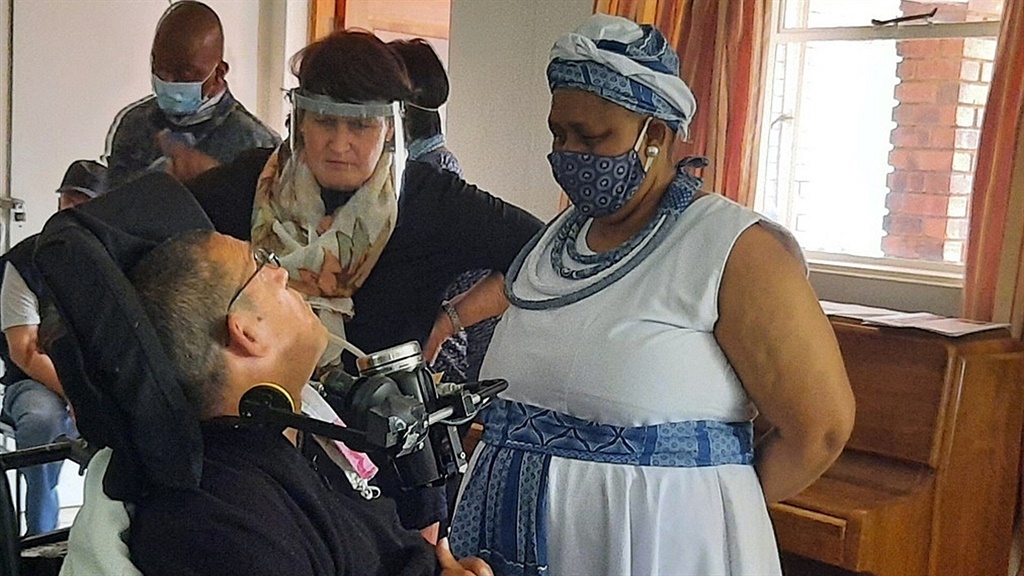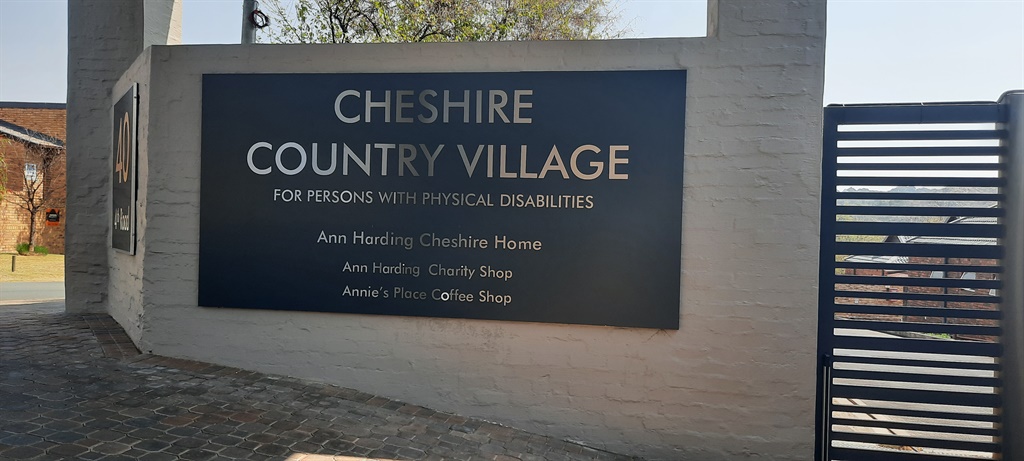
- The Department of Social Development is conducting oversight visits at facilities caring for people and monitoring Covid-19 protocols.
- Deputy Minister Hendrietta Ipeleng Bogopane-Zulu inspected Ann Harding Cheshire Home in Randburg.
- The home had implemented strict protocols before the national lockdown
Covid-19 has drastically changed the lives and routines of those with disabilities, and it will take a while for them to get used to the new normal, says Social Development Deputy Minister Hendrietta Bogopane-Zulu.
Bogopane-Zulu was speaking to News24 during her visit to Ann Harding Cheshire Home for people with physical disabilities in Randburg, Johannesburg, on Friday.
The department is conducting oversight visits to monitor and assess Covid-19 protocols at various facilities catering for vulnerable groups, including children, the elderly, and those with disabilities.
While Minister Lindiwe Zulu was conducting visits in the Free State, Bogopane-Zulu did her walkabout at Cheshire. The home provides care for adults aged 18 to 54 who have a physical disability. It accommodates up to 40 full-time residents.
The home houses residents who have become permanently disabled as a result of among other things: car accidents, violence and assault, strokes, degenerative diseases, and congenital diseases.
Entrances and corridors at the home have sanitiser stations and residents wear masks as they manoeuvre in their wheelchairs. Daily employee screenings also take place, with a limited number of visitors allowed under lockdown level 2.
As a safety measure when the virus was at the peak, no visitors and volunteers were allowed during hard lockdown, the deputy minister was also informed by management at the home.
But all these changes have not been easy and it is important that going forward, caution is taken while also allowing the physically disabled to continue with their routines.
"Lockdown had a big effect on the lives of people with disabilities, adults and children alike. One; there isn't a broader understanding of the fact that some of the things that are health protocols from a Covid-19 perspective are actually not applicable to persons with disabilities.
"Because they need care, so we need to make sure we supply more protective equipment than we ever had because they need to be watched. In the past there was never a challenge of gloves because they would wash the person, now they ( home staff) need to have a disposable apron, they have to have a glove they're going to use when they have to assist every resident," Bogopane-Zulu said.
Bogopane-Zulu says Covid-19 "severely" caused a constraint on the normal routine of persons with disabilities. (@Sesona_Ngqaks) pic.twitter.com/0WsdL6x6iN
— Team News24 (@TeamNews24) September 4, 2020
She added that all the additional efforts to ensure everyone within the home is safe, came at a cost and the department, as a custodian of social development, steps in to assist where they can.
The deputy minister said the barring of visits at such homes also resulted in residents suffering because they had to do without having their families and friends visiting and without any interaction with the outside world.
'How do you social distance when pushing a wheelchair?'
Social distancing has also been another challenge for the disabled, especially those who are blind and have guides, Bogopane-Zulu said.
"How do you social distance when somebody is pushing my wheelchair? As a blind person, I need my guide to hold on to, so how do we social distance?" she asked hypothetically.
"It is all these realities. There is deaf person who needs to lip read, how do you lip read a mask?
"You need to see the facial expression of the person. Sometimes you are not very good in sign language but you are good in lip reading."
Shields were not mandatory, but masks are mandatory.
"For families with disabled children, or those disabled adults and their families, lockdown has changed their lives upside down and it will be a while for them to go back to what will then be the 'normal new normal'".
Deputy Minister Bogopane-Zulu is interacting with Ann Harding Cheshire Home residents. (@Sesona_Ngqaks) pic.twitter.com/e427gAyRgd
— Team News24 (@TeamNews24) September 4, 2020
Bronwyn Ward, the home's national co-ordinator, told News24 that the protocols they showcased to the department were already implemented before the country moved to lockdown.
She said the home has been strict in its protocols because of the vulnerability of the residents they housed.
Ward added that while limited family visits were now allowed at the home, they were strictly by appointment. The size of the group visiting is also limited to ensure the risk of the spread of the virus is mitigated, and to make for easy tracing should there be a reported cases.
"The contact with the outside world that was stopped so suddenly and for such a prolonged period has obviously taken a toll (on residents)," Ward said.
Cheshire home outlining its measures to Social Deputy Minister. (@Sesona_Ngqaks) pic.twitter.com/CyB32RIJAO
— Team News24 (@TeamNews24) September 4, 2020
We know this was a long read and your time is precious. Did you know you can now listen to articles? Subscribe to News24 for access to this exciting feature and more.

